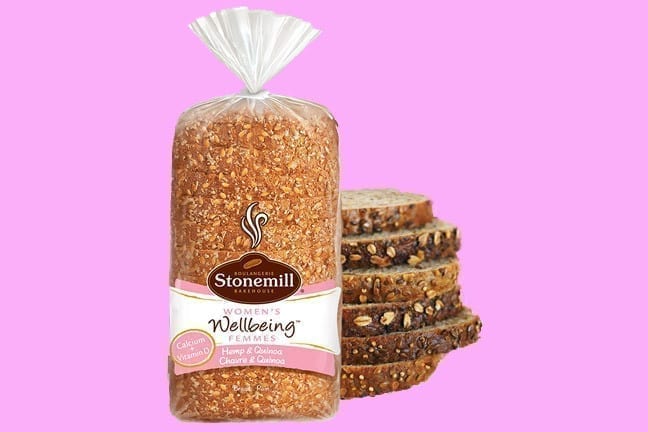The food message for people with rheumatoid arthritis (RA) will no doubt sound familiar, because the recommendation is to eat a balanced, nutritious diet, including whole foods, complex carbohydrates (whole grains) and fresh fruits and vegetables, with no more than 20 percent of calories from fats.
Additionally, people with RA should eat plenty of protein, aiming to get about 30 percent of calories from protein, to prevent muscle loss as a result of the disease.
While losing weight is frequently recommended for people with other types of arthritis, people with rheumatoid arthritis frequently lose weight as a result of the illness. For this reason, it’s even more important to eat well, and to eat enough.
Letting yourself lose too much weight will put you at risk for nutrition-related diseases such as osteoporosis, malnutrition and — especially significant for people with RA — protein deficiency, which can affect muscle strength.
While there is preliminary evidence that the elimination of some foods may improve rheumatoid arthritis, there is still much that needs to be learned through carefully designed clinical trials. The bottom line is that dietary changes to bring about improvement in the condition may be important for some people with RA but that any changes should be discussed and coordinated with a health care provider who is familiar with such approaches for rheumatoid arthritis. Radical changes in diet without proper guidance are unlikely to be beneficial and may be harmful.
QUIZ: What’s Your Eating Style?
Try This
Start eating six walnuts each day. They’re filled with omega-3 fatty acids. Don’t like walnuts? Try fish oil capsules.
Go Mediterranean
The Mediterranean diet, which refers to the way of eating of people who live in the countries bordering the Mediterranean Sea, is typically a good choice for people with RA because of its anti-inflammatory properties. People in this region consume relatively little red meat, a lot of fish, and a little wine, and olive oil is the main source of fats.
According to a number of studies, the nutrients in the foods, including omega-3 fatty acids, found in fish, help to reduce the inflammatory activity of the immune system. In fact, clinical trials have shown that the arthritis-alleviating effects of omega-3s are amplified when the fatty acids are consumed in combination with olive oil.
Beyond the Basics: Antioxidants, Omega-3s and Other Nutrients
In addition to maintaining a healthy diet and increasing your intake of omega-3 fatty acids, whether from foods or supplements, consuming more antioxidants can help, according to Rula Hajj-Ali, MD, a specialist in rheumatologic and immunologic disease at the Cleveland Clinic.
Antioxidants, such as vitamin C, beta-carotene and selenium, found in fresh fruits and vegetables, may help prevent tissue damage caused by free oxygen radicals. In fact, a study from the Netherlands reported that after just 10 weeks on an antioxidant-infused diet, the number of swollen and painful joints in study subjects were significantly decreased, and general health significantly increased.
You can try to get enough antioxidants through your diet, by eating plenty of fresh fruits and vegetables, but most experts recommend that you take supplements as well, just to be sure. Important antioxidants and their sources include:
- Vitamin A: beef, pork, chicken, turkey and fish liver; carrots, broccoli, sweet potatoes, kale, spinach, leafy vegetables, pumpkin
- Vitamin C: Kakadu plums, rose hips, black currants, red peppers, parsley, guavas, kiwis, broccoli, brussels sprouts, citrus fruits
- Selenium: Brazil nuts, tuna, beef, cod, turkey, chicken, eggs, cottage cheese
MORE: Gazpacho Soup Recipe for Vitamin C
Other important nutrients for people with RA include vitamins B5 and B6, copper and zinc. These vitamins and minerals are essential for your body to produce and repair cartilage (the slippery stuff in our joints that helps them move easily and without pain). Since RA can break down cartilage, good nutrition is essential to help preserve and repair it. Good sources include:
- Vitamin B5: potatoes, bananas, lentils, chili peppers, tempeh, beans, liver oil, liver, turkey, tuna, nutritional yeast, brewer’s yeast
- Vitamin B6: potatoes, bananas, chickpeas, chicken, pork, beef, trout, sunflower seeds, spinach, tomatoes
- Copper: oysters, squid, lobster, mussels, crab, clams, beef liver, cashews, hazelnuts, macadamia nuts, pecans, soybeans, lentils, cocoa, tomatoes, potatoes, sweet potatoes, bananas, avocados
- Zinc: oysters, beef, crab, pork, chicken, lobster, beans, cashews, yogurt, raisins, chickpeas, cheese
Another helpful nutrient: flavonoids. They’ve been shown to reduce the production and the strength of some immune components — the ones that attack your joints when you have RA. By reducing the inflammatory activity of your immune system, you can reduce the inflammation of your joints and organs. Plus, foods that contain flavonoids are all part of a healthy diet. Good sources include red, blue and purple berries; green and white teas; cocoa; apples; grapes; red wine; citrus fruits and juices; broccoli; and soybeans and soy products.
— by John Henry Dreyfuss




































